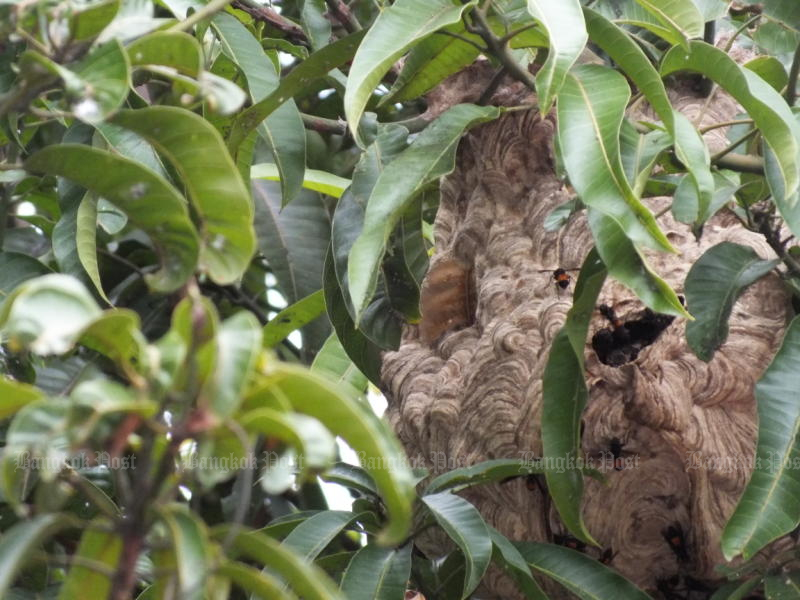
One man died and another was in critical condition in eastern China after being stung over 50 times by wasps while on a hunt to find and eat larvae from their nests.
The two men, aged 52 and 30, set off into the hills outside the city of Hangzhou after work last Thursday, and began hitting wasp nests and using sticks to extract the most developed larvae, or pupae, from the nests’ honeycomb-like interior, local media reported.
They were each stung around 50 times in the process.
Focused on the nutritional value of the protein-rich larvae, the pair initially ignored their stings, leaving the area only after they were ambushed by a larger swarm, according to Qianjiang Evening News.
The following morning both men felt unwell and received treatment at a local hospital. The younger man’s condition deteriorated rapidly and he died of multiple organ failure later on Friday, the report stated.
On Saturday morning, the older man, surnamed Shi, was transferred in a critical condition to the intensive care unit of Hangzhou Chinese Medicine Hospital, where he too showed symptoms of organ failure, according to medical officials cited in media reports.
Qianjiang Evening News’ website reported on Tuesday that Shi’s condition had stabilised.
“An accumulation of toxins from wasp stings can cause serious damage to the body,” said Wang Xiaoyong, director of the hospital’s dermatology department, adding that the toxins can affect circulation and organ function as well as cause nerve damage.
“Some effects are even irreversible,” he said.
Hospital staff warned of the dangers of getting close to wasps or hunting for their larvae, saying that they treat several critical wasp sting cases each summer.
“Mr Shi and his colleague took some protective measures, wearing long-sleeved trousers and hats, but they were still stung,” doctor Shen Anqiang told local media. “If you see wasps in the wild, it is best not to get close.”
Shen added that although wasp larvae do have high levels of protein, they are not meant to be eaten raw and must be processed first.
Bee larvae features in several regional dishes across mainland China and Taiwan, while bee sting therapy is a growing acupuncture trend in China.